Steps to start selling baked good from home
- Create a business plan
- Know the legal requirements of running a home business
- Get business insurance
- Register an LLC
- Check the tax regulations
- Choose your baking niche
- Determine how you will sell your products
While you might be hard-pressed to find someone who doesn’t love to eat baked goods, finding someone who loves doing the baking is another story. But for some people, not only is baking a creative outlet and a great stress reliever, it’s also a great business opportunity.
Although the traditional brick-and-mortar bakery has its merits, starting at home is a good way to get rolling, as there’s a low barrier to entry. You can launch your business faster by using your home kitchen and all its baking utensils.
There are also fewer expenses required to start. Without the need to rent a property or build a bakery, the bulk of your budget can go toward buying quality ingredients and marketing your business.
The ideal home-based bakery e-commerce solution
Create an online store for your business with Jotform Store Builder – no coding experience needed! Enable customers to place orders and make payments online.
Ovenly founders Agatha Kulaga and Erin Patinkin started in their Brooklyn home before growing to a company with over 70 employees. They are proof that learning how to start selling baked goods from home can be profitable if you have the blueprint for success.
In this piece, we’ll explain the steps you need to take to start a home-based baked goods business.
How to start selling baked goods from home
Selling cookies to your friends and neighbors is a good start, but it isn’t the foundation of a sustainable business. For that, you’ll need a solid plan. Follow the seven steps below to get your home-baked goods business up and running successfully.
1. Create a business plan
If you’re serious about baking more than a few buns on the weekend, you should create a business plan that details how you’ll manage your time, finances, and inventory, and how you’ll market and sell your products. This plan will serve as a guide you can refer to as you scale, making it easier to keep operations on track.
2. Know the legal requirements of running a home business
Overlooking the laws and regulations on home businesses is a recipe for disaster, especially when it comes to food service, as you could incur huge fines. You may need a permit or license to sell homemade food, so check with your local government and state health department before proceeding.
3. Get business insurance
While you’re working from home, it’s crucial to have a business insurance policy to safeguard against potential mishaps. Whether it’s a fire in the kitchen or an angry customer claiming ill effects from a bad batch, having insurance will give you financial protection and peace of mind.
4. Register an LLC
A limited liability company (LLC) is a business structure that offers business owners limited liability protection and pass-through taxation, which enables the owners to declare business taxes on their personal tax returns. However, if a limited liability company goes into debt, the debtors cannot lay claim to the owners’ personal possessions.
This venture into baking might start as a hobby for spare cash, but it’s best to do things by the book so you don’t lose your home in a lawsuit. Set up a limited liability company to protect your personal assets.
5. Check the tax regulations
A sales tax permit is often free, but you may need to pay taxes on sales or food items. Refer to local business information websites or your state government to determine what tax you need to pay. By putting money aside each month, you can collect enough to cover your annual sales tax bill when the time comes to file your business tax return.
6. Choose your baking niche
While you may be tempted to offer as many items as possible, it’s better to limit your offerings in the beginning. Focus on one or two items that are your specialty, and make them better than any of your competitors’ similar offerings.
Finding a niche — like gluten-free bagels or vegan cookies, for example — allows you to stand out as a specialist and makes it easier to make a name for yourself among a small, dedicated customer group.
7. Determine how you will sell your products
When you don’t have a traditional brick-and-mortar bakery, you have to think outside the box for selling your delicious goods. Will you head to the local farmers market every Saturday or rely on your friends and family to spread the word about your new venture?
While these options can bring in some sales, another option that may be more fruitful is selling baked goods through your own online store. This way, you can reach a wider audience that extends beyond word-of-mouth or in-person encounters.
If you’ve never built an online store before, the thought of setting one up might seem daunting. Jotform Store Builder is an excellent option for online bakery businesses because it’s so easy to use and doesn’t require any coding experience.
Here’s how Jotform Store Builder enables you to sell baked goods from home:
- It provides a helpful starting point. With over 100+ industry-specific store templates, you don’t have to start your online store from scratch. Instead, you can choose a store template that meets your business needs. Simply drag and drop your logo, list your products and pricing, and change the app icon and color scheme to personalize it.
- It makes adding useful functionality easy. Jotform Store Builder offers over 80 widgets to add whatever functionality you need — product lists, images, and videos, for instance — so your online store is engaging and comprehensive.
- It provides multiple payment options. You can choose from over 25 payment gateways such as Square, Stripe, PayPal, and Venmo to give your customers a range of payment options, from credit and debit cards to digital wallets and more.
- It gives you important operational tools. Every online order is stored in Jotform Tables, where it’s easy to track and manage details. You can also create reports to better understand your customers and sales patterns, such as seasonal trends.
A solid marketing strategy is the icing on the cake
Once you’re up and running, think about ways to spread the word so you can share your products with more people. With a well-devised marketing strategy, you can stir up interest with enticing photos and memorable branding that will help your business grow and thrive.
For example, with Jotform Store Builder, you can create QR codes that link back to your online store. Add these codes to flyers and business cards to spread the word about your new bakery business and make it easy for customers to find your store online.
You can also stir up interest with enticing photos and memorable branding. With the right marketing strategy and the tools to support it, your business is more likely to grow and thrive.


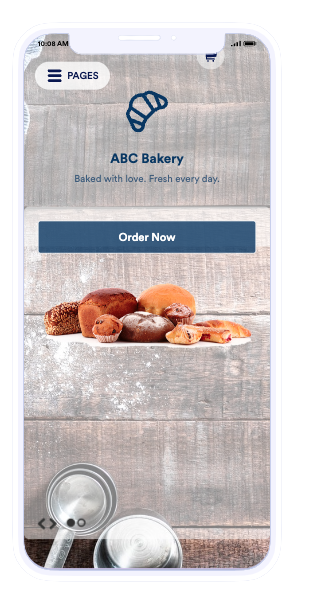
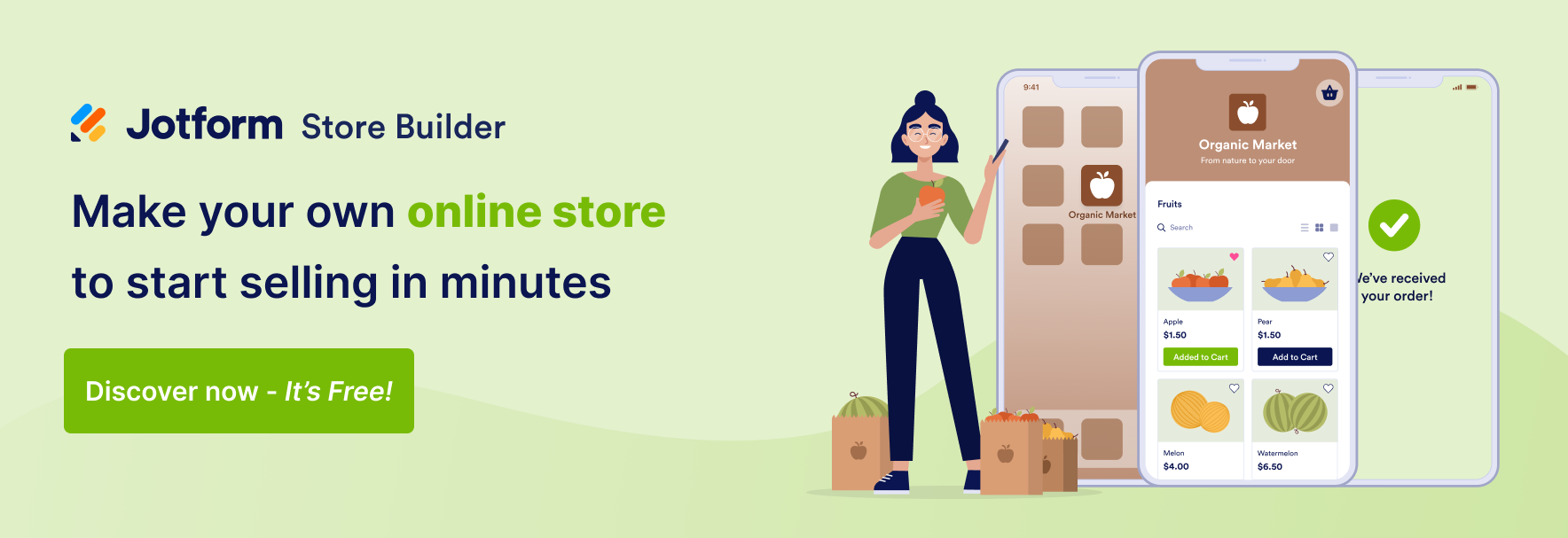












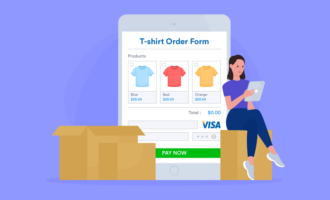
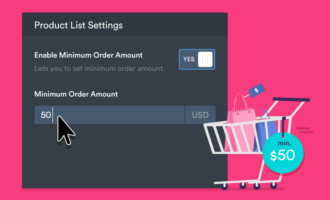









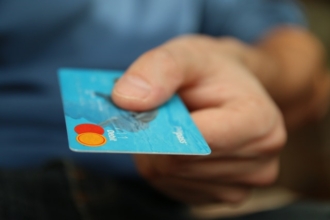




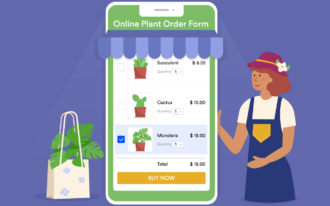


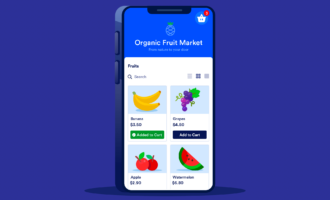


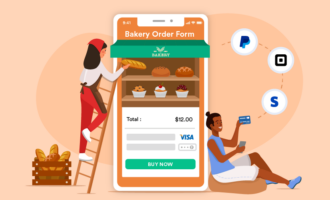



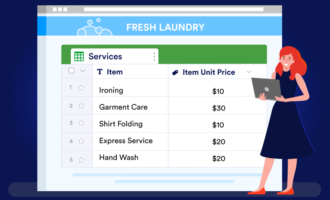
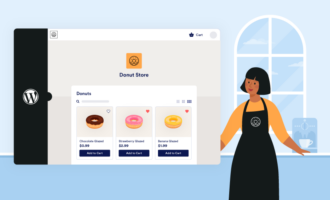






Send Comment:
3 Comments:
More than a year ago
Great advice, Thanks! Please, where can I find Research Analyst in any where in the world? Thanks.
More than a year ago
This is very articulated with elucidate understanding of the various types of analysis. please, how ca I get Good Traffic for my Business?
More than a year ago
Thank you for valuable information on how to sell your bake goods from home. I have been thinking about selling My Baklava, from home, and have given up the idea each time.. This is not Greek baklava, or tastes like any other baklava, or most expensive baklava from established bakeries. Everyone always asks for it or is disappointed if not getting it for special occasions. I'm not bragging, it is unbelievably delicious and beautiful to look at. I seem to be making it for special people in my life, mostly for Christmas and special occasions. It is time consuming and expensive to make, and everybody is asking me to start selling it. I have a very large and beautiful kitchen with new everything, well it is just 2 years old, and I love baking and cooking in it. I suppose, I have lost the opportunity, and now, with COVID-19, I'm not sure it is possible to make a business out of it. Still spending a lot of time making these gems, but have not turned it into a business. Open to ideas in Colorado.